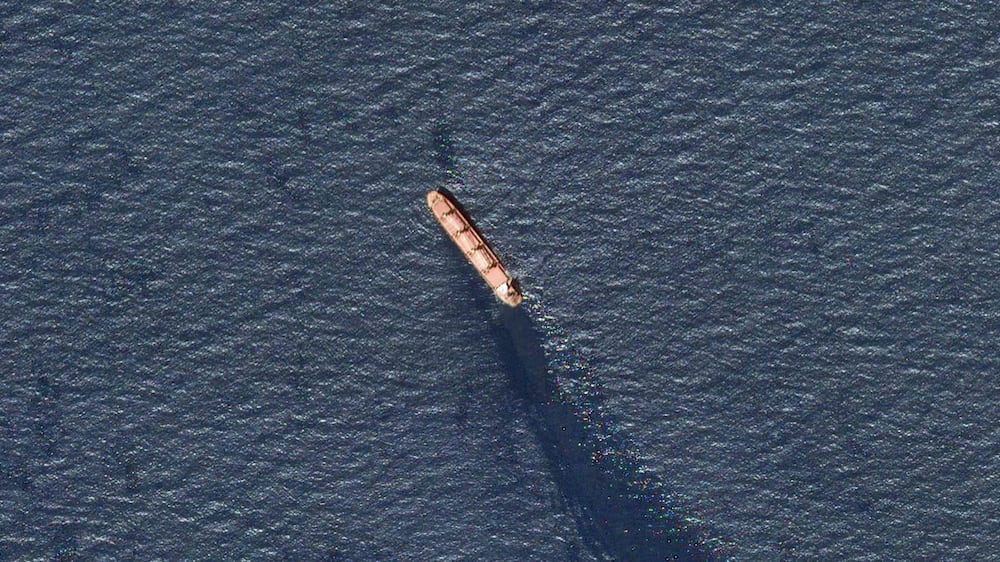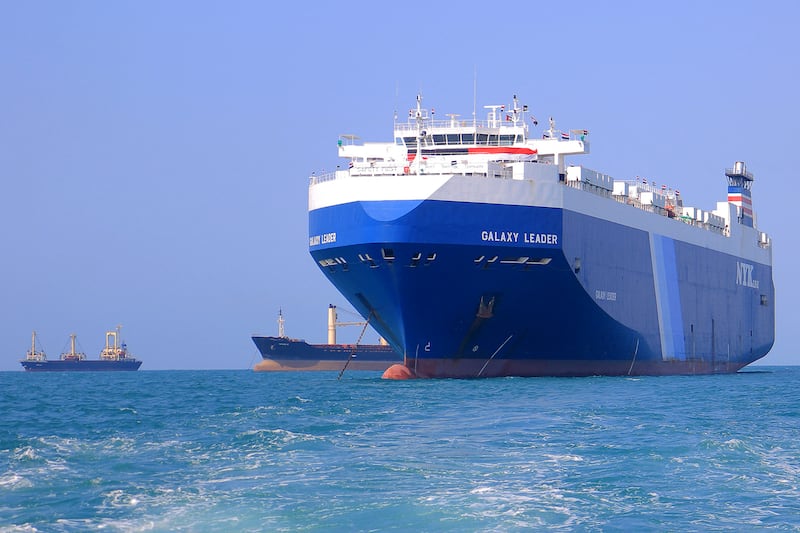Shipping volumes through the Suez Canal more than halved last week, while volumes on the alternative route around the Cape of Good Hope surged, as attacks by Houthi rebels on commercial vessels force major operators to divert away from the key global trade artery.
Egypt's Suez Canal shipping volumes in the week ending February 13 dropped 55 per cent from the same period a year ago, while volumes around the Cape of Good Hope rose nearly 75 per cent, according to the latest data from the International Monetary Fund's PortWatch platform.
The latest figures underscore the continuing effects of the shipping crisis in the Red Sea, which has dragged on for three months with no end in sight.
Many shipping companies have rerouted their vessels away from the Red Sea to avoid the attacks, opting instead for the longer and more expensive route around the Cape of Good Hope in South Africa.
The Suez Canal is the shortest sea route between Asia and Europe. With about 12 per cent of the world's shipping traffic passing through it, the waterway is a major facilitator of global trade.
Vessels passing the Suez Canal decreased by an estimated 42 per cent compared to its peak, the UN trade arm Unctad said in a report this week.
With major players in the shipping industry temporarily diverting vessels from the Suez, weekly container ship transits have fallen by 67 per cent, and container carrying capacity, tanker transits, and gas carriers have experienced significant declines, Unctad said.
“Mounting uncertainty and shunning the Suez Canal to reroute around the Cape of Good Hope is having both an economic and environmental cost, also representing additional pressure on developing economies,” it said.
The declining Suez Canal shipping volumes, and the ensuing drop in revenue, is the latest headache for Egyptian authorities already grappling with economic challenges.
Income from the international strategic waterway in January dropped to $428 million, compared to $804 million in January 2023, Osama Rabie, chairman of the Suez Canal Authority, said earlier this month.
The total number of ships passing through the Suez Canal fell to 1,362 vessels last month, down 36 per cent compared with the 2,155 vessels that navigated the canal during January 2023, he said.
Houthi militants in Yemen began attacking commercial vessels in solidarity with the Palestinians in the Israel-Gaza war, and show no signs of retreating despite the US and Western allies attempting to deter the Iran-backed group with air strikes.
Before the Israel-Gaza war, Egypt was collecting about $700 million per month in Suez Canal transit fees, the IMF's managing director Kristalina Georgieva said earlier in February.
However, the country is now losing “hundreds of millions of dollars” per month because of the Houthi attacks on shipping in the Red Sea.
The canal is a crucial source of foreign currency for Egypt. The North African economy, already grappling with record inflation and a heavy debt burden, has been hit hard by the Gaza war, which has also slowed tourism.
Houthis claim responsibility for attack on Israeli ship in the Red Sea

Egypt and the IMF “continue to make excellent progress” on the talks for a comprehensive support package for the North African economy, IMF spokeswoman Julie Kozack said on Thursday.
“The IMF team and the Egyptian authorities have agreed on the main elements of a programme, and the authorities have expressed a strong commitment to it,” she said.
Ms Kozack decline to provide further details as discussions are continuing.
“There is a need to have a very comprehensive support package for Egypt. And we're working very closely with both the Egyptian authorities and their partners to ensure that Egypt does not have any residual financing needs and also to ensure that the programme is able to … ensure macroeconomic and financial stability in Egypt,” she said, when asked about the potential impact of refugees moving from Gaza into Egypt.







